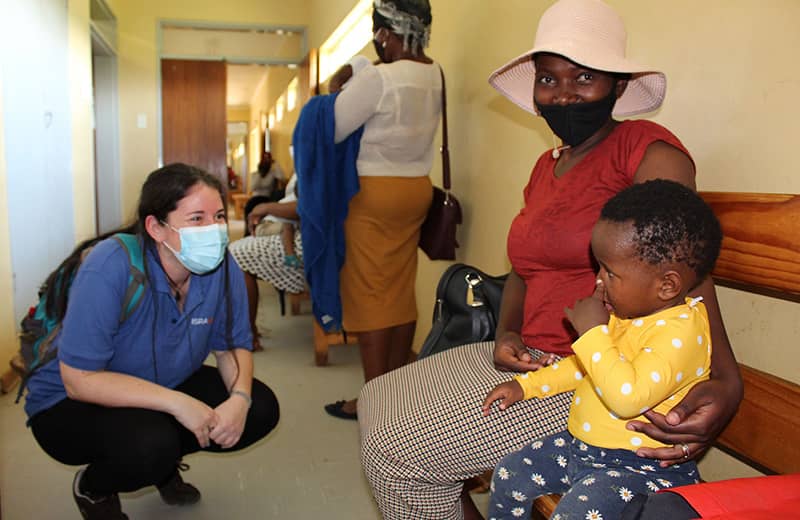IsraAID, the largest humanitarian organisation in Israel, has collaborated with Monday.com to support the Ministry of Health as they work to ensure that the whole population of the Kingdom of Eswatini is vaccinated against the virus.
The aid agency and the workplace solutions provider are using a virtual software monitoring system called the Vaccine Control Room (VCR), to aid in the efficient rollout of vaccines.
The VCR can be accessed from anywhere in the world, but is managed from a physical control room in Mbabane, Eswatini. IsraAID’s staff on the ground in Eswatini are supported by public health and humanitarian aid specialists based out of IsraAID’s Tel Aviv, Israel, headquarters.
The VCR manages the logistics involved in moving vaccines around four regions of Eswatini. It also is able to manage complicated data and can ascertain the age, gender and location of Eswatini residents.
IsraAID and Monday.com have shown that technology can make a major difference in countries which lack the budgets and infrastructure of many wealthier countries.
As much as 69% of Eswatini’s population live below the poverty line and the country battles with a number of challenges. It follows that a global pandemic would place the country under extreme strain.
But a country’s challenges can also be the source of its strength. The kingdom has already developed critical health infrastructure in order to help people living with HIV. This can be tapped into to support a successful vaccine rollout.
The support of the VCR has enabled the Eswatini vaccination rollout to be highly efficient. Eswatini has one of the highest vaccine rates in the region.
TECHNOLOGY AS A GAMECHANGER DURING THE PANDEMIC
Technology has been a game-changer during the pandemic with bright minds having developed an array of technological tools to assist in protecting people against the worst pandemic in memory.
Mobile and computer applications that administer contact tracing, Covid-19 test results, track infection numbers and waves have improved the fight against the pandemic. Machines have been used to 3D-print masks and other medical gear.
These tools have helped people the world over respond quickly to an unprecedented threat to the global health system.
Technology has been pivotal in the fight against this pandemic, reducing the infection rate and raising awareness around the virus. The power of technology must also be brought to bear in the global race to vaccinate, particularly in countries with added vulnerabilities and greater healthcare challenges.
VACCINATIONS ARE THE KEY TO RETURNING TO NORMALITY
Many organisations are still forcing their staff to work-from-home as vaccination rollouts have slowed in certain countries and there is still a large degree of uncertainty around the long-term effects of Covid-19.
But one thing continues to be supported by science: vaccines work.
According to research by Discovery Limited, individuals who have taken a vaccine against Covid-19 have a 50% to 80% lower risk of infection while their chances of ending up in hospital are decreased by up to 85%. Vaccinated people are also 90% to 95% less likely to die from Covid-19.
Vaccinating the masses has also enabled countries to kickstart their economies after enduring lockdowns used to curb the spread of Covid-19. Many countries saw their economies shrink and shed millions of jobs.
But once they reached high levels of vaccination, they were able to host events and to stimulate tourism. People have regained jobs or been employed in new roles at other companies.
People in Israel, which has already rolled out booster shots to the majority of its eligible population, are living with the virus because they have been protected against the severity of the disease, limiting the number of potential deaths from it tremendously.
This is why IsraAID is committed to supporting the Kingdom of Eswatini on the road to becoming a fully-vaccinated country. IsraAID wants to help this beautiful African country regain economic momentum and to beat the pandemic.
The VCR is a key tool in aiding the vaccine rollout in Eswatini, where the adoption of new technologies can be slow and where the digital divide is so large.
IsraAID’s team is now preparing to hand management of the VCR over to their partners from the Ministry of Health, in order to ensure long-term benefit and local expertise. Ultimately the aim is simple, if not straightforward: safeguarding the health of the nation of Eswatini so that its more than one million people can live prosperous lives, now and for years to come.

